Starring: River Phoenix, Judd Hirsch, Christine Lahti & Martha Plimpton
Written by: Naomi Foner
Directed by: Sidney Lumet
Rated: PG_13
Running Time: 1hr 56mins
NOMINATED – ACADEMY AWARDS: Best Supporting Actor (River Phoenix) and Best Writing, Screenplay Written Directly for the Screen (Naomi Foner)
WINNER – GOLDEN GLOBE AWARD: Best Screenplay – Motion Picture (Naomi Foner)
NOMINEE – GOLDEN GLOBE AWARD: Best Motion Picture – Drama, Best Screenplay -Motion Picture (Naomi Foner, Best Director – Motion Picture (Sidney Lumet), Best Actress – Motion Picture (Christine Lahti) and Best Supporting Actor – Motion Picture (River Phoenix)
-An excerpt regarding RUNNING ON EMPTY from MAKING MOVIES by Sidney Lumet-
“Naomi is a fine, talented and original writer. Somehow she fell in love with a scene that, to me, was her only bad idea in the whole movie. The young boy, played by River Phoenix, comes into a strange house, sits down at the piano, and begins to play a Beethoven sonata. Eventually, he notices that he is being watched by a young girl, about his age. In the script, he segues into boogie-woogie piano music. I explained to Naomi why I thought it was a bad idea. There was a feeling of pandering to the audience: See, he’s not really an egghead – he likes jazz, just like you and me… … Naomi fought for it, so I decided to leave it in to see how it played in rehearsal. When I began to stage the scene, River asked if we could cut that bit. He felt false playing it. I saw Naomi pale. We started to talk about it. River told Naomi with great simplicity and earnestness how it compromised his character. (It was enchanting to see this 17-year-old arguing with a serious writer twice his age.) Finally, I suggested we try it for a few days to see if there was value to it. At the end of rehearsal, Naomi came over to me. She said she didn’t mind if I had to stretch to accommodate the scene, but she couldn’t bear to see River turning himself inside out to make it work. She loved the scene, but she said, ‘Let’s cut it.’”
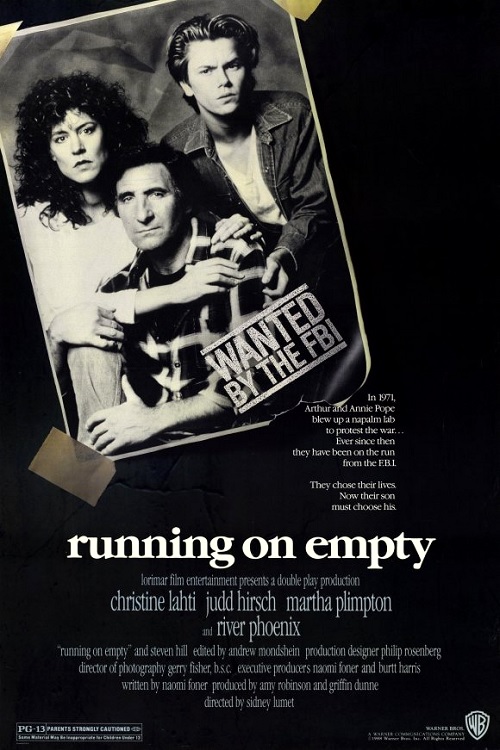
Over the course of his career, director Sidney Lumet made some of the most memorable movies in cinema history. Films like 12 ANGRY MEN, THE PAWNBROKER, DOG DAY AFTERNOON, NETWORK and THE VERDICT helped define his impressive career and even director Steven Spielberg once called him “…one of America’s greatest filmmakers.” His 1988 film RUNNING ON EMPTY may not be as well known as some of his others, but it definitely deserves as much admiration and respect. It is a film that sidesteps the trappings of a typical Hollywood political thriller and is more interested in exploring the themes of family, love and commitment in such a genuine way that it will leave an emotional impression on the viewer that they won’t soon forget.
The film tells the story of Arthur (Judd Hirsch) and Annie (Christine Lahti) Pope, a married couple who have been on the run from the law since the sixties. In an act of political protest, they bombed a building where the military made Napalm to drop on people during the Vietnam war. Unbeknownst to them, the building, which was supposed to be empty, wasn’t and an innocent janitor was both blinded and paralyzed in the process. The Popes have been on the run ever since, dragging their two kids, Danny (River Phoenix) and Harry (Jonas Abry), along for the ride.
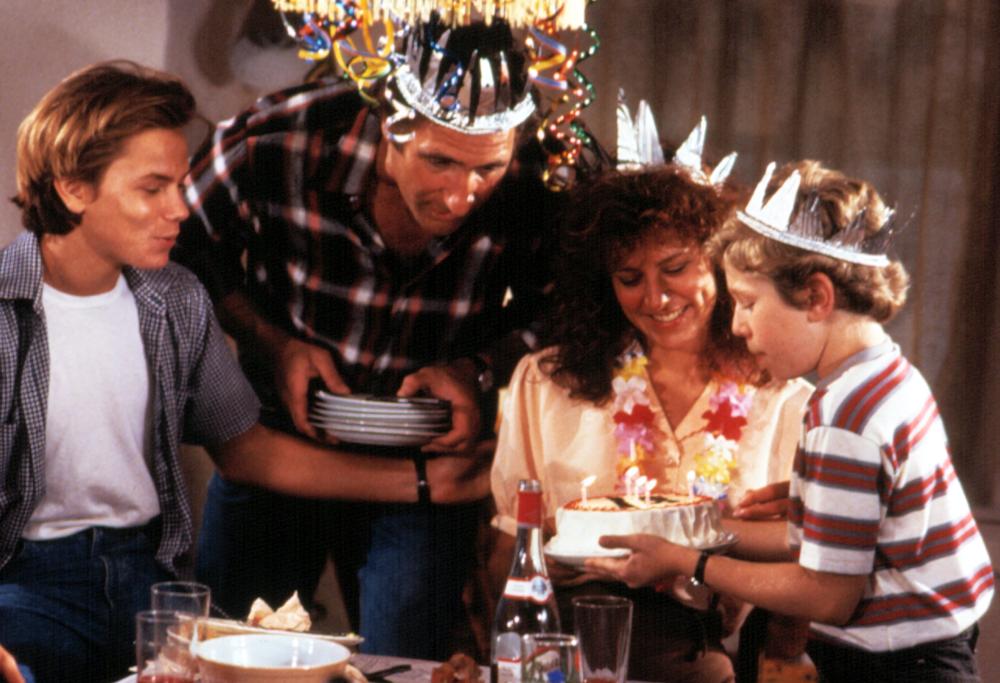
RUNNING ON EMPTY could’ve very easily been made as a typical action-packed political thriller centered on the F.B.I. tracking down the Pope family so that the two parents, Arthur and Annie, could pay the price for the politically motivated crime that they committed. The film even starts with this very scenario. We see the feds cornering Danny who is able to escape and warn his family in time for them to make their getaway. There are news reports on the TV and we watch the Popes start to prepare for a new life by changing their appearances and rehearsing new names. But, when the family eventually finds a new safe haven to call home and as they start to slowly settle into their new life, the film ironically starts to settle into its true intentions. Lumet and Screenwriter Naomi Foner aren’t interested in giving us a Hollywood action flick, the politics that created the situation are mostly thrown out the window and the F.B.I. barely have a presence in the film. The script focuses on the family drama created by the older son Danny’s newfound need to move forward with his life and his parent’s desire not to let him go. This is a story about a parent’s responsibility to their kids and how a person’s mistakes can have drastic consequences on their loved ones. Due to no fault of their own, the two kids have been forced to live life moving from town to town, unable to build friendships or have any kind of normal childhood. The heart of the script comes from the human drama that the parents have thrust upon their offspring and at seventeen this especially affects Danny, who is at that time in his life when he needs to start thinking of his future.
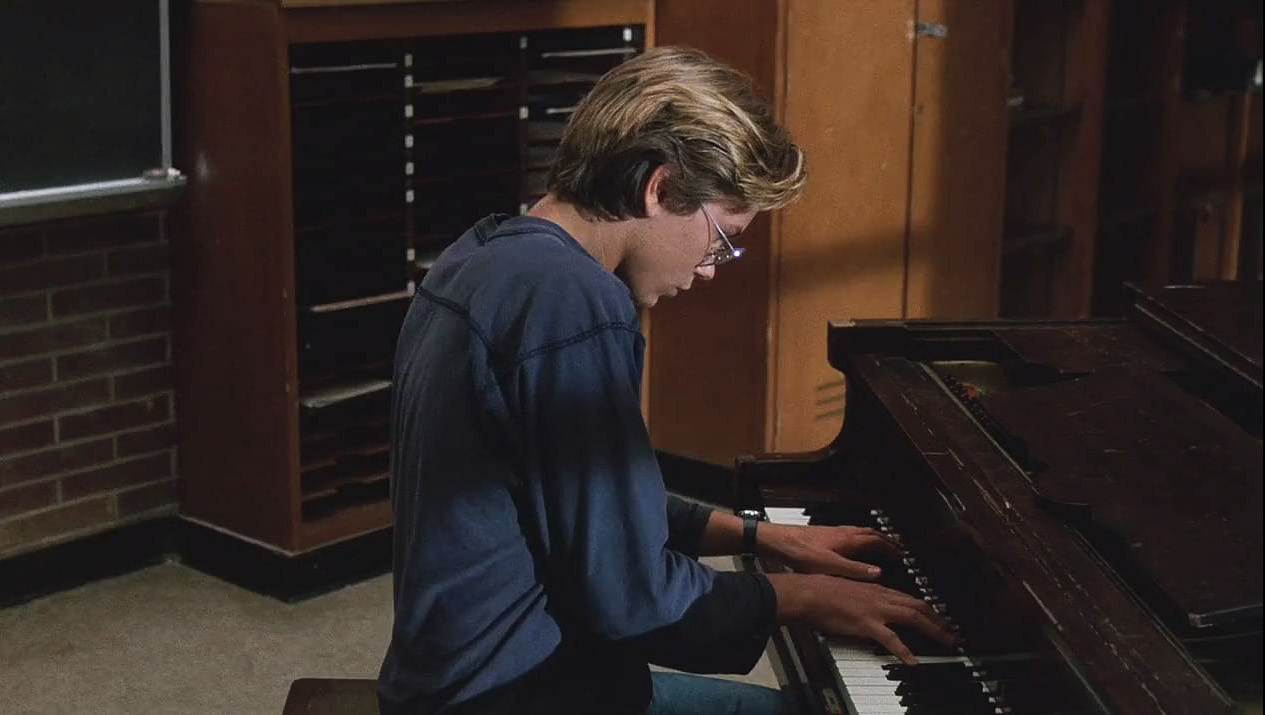
River Phoenix is exceptional as Danny. His performance is so strong that it garnered him both Oscar and Golden Globe nominations. When the inevitable happens and Danny meets a teacher who sees his true musical potential, as well as a girl he can’t help but fall in love with, his life changes in an unexpected way. He starts to recognize that there is a real future waiting for him if he can just break away from his parents. For the first time in his life, he’s conflicted about whether or not to stay behind the next time his family moves on while also having to emotionally wrestle with how to handle the new love of his life with whom he has been forced to keep so many secrets from. Watching Danny deal internally with all these conflicts is truly an emotional experience for the viewer because Phoenix approaches the character in such a real and sensitive way. We really feel for Danny as we watch him struggle with his inner self, trying so hard to figure out how to move forward in life without letting his parents, especially his father, down.
Martha Plimpton, who plays Danny’s love interest, Lorna, is a great choice in casting. This is her second time playing opposite Phoenix, with the first being in Peter Weir’s underrated THE MOSQUITO COAST. Playing a polar opposite to Danny, Lorna is more outspoken and has a strained relationship with her father. Phoenix and Plimpton as performers seem so comfortable with each other that these two characters who can feel so different from one another still seem to really connect in a very special way. The teen romance that starts to blossom feels natural and real as it is played with an awkwardness that teenage first love can create, especially considering the added secrets that Danny is forced to keep from Lorna, someone that he would really like to open up to. The tender moment in the woods where Danny and Lorna show their feelings for the first time all of a sudden becomes very uncomfortable because Danny can’t fully commit and it’s truly heartbreaking to watch him pull away.
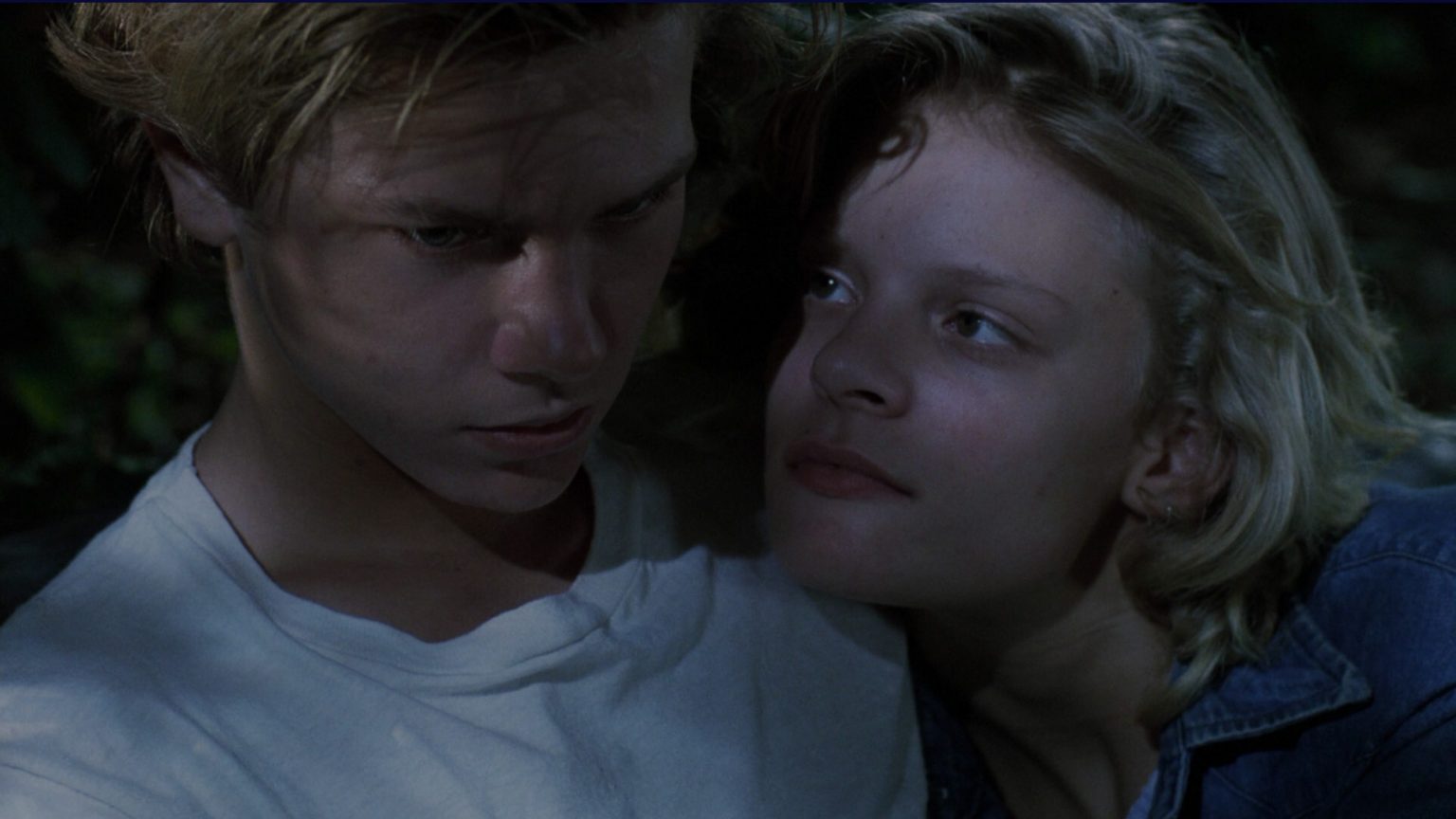
Foner’s script is interesting in its handling of the characters we are presented with, as the story is not all about Danny’s inner struggles. Almost every character in the film has their own story to tell, making the world that surrounds Danny all the more interesting. Danny’s father is a man set in his ways. Convincingly played by one of my personal favorite character actors, Judd Hirsch, Arthur has a firm belief that the family must stick together and always be there for each other. A small part of him doesn’t want to give up his real identity, but he continually does so in order to keep his family on what he thinks is the right path. A moment early on has him discovering that his mom has passed away and while talking to Annie he tells her, “There’s nothing left for us to go back to now. There’s just us and the boys… …We have to hold on to each other.” He believes the family unit needs to stick together which is ironic since his political actions have forced him and his wife to live a life far away from everyone they love. When approached with the idea that it might be Danny’s time to move on, he is dead against it because he thinks if he lets Danny go they will never be able to see him again.
Meanwhile, Annie is a woman who thinks differently than her husband and Christine Lahti plays the character with the complexity needed as Annie at times seems very content with the life she leads, yet also begins to wrestle with a sense of regret for what she’s put her kids through without ever really considering their future. At one point in the film, she actually admits to Arthur that Danny’s moving on was something that she never even let herself think about.
Even the smallest of characters are written with their own stories. Mr. Phillips, the music teacher played by Ed Crowley, is more than just a tool to give Danny’s music dreams a push forward. The importance given to Mr. Phiilips’ need to encourage Danny to pursue his music seems to come as a direct reflection of his inability to do the same for his own daughter, with whom he can barely communicate.
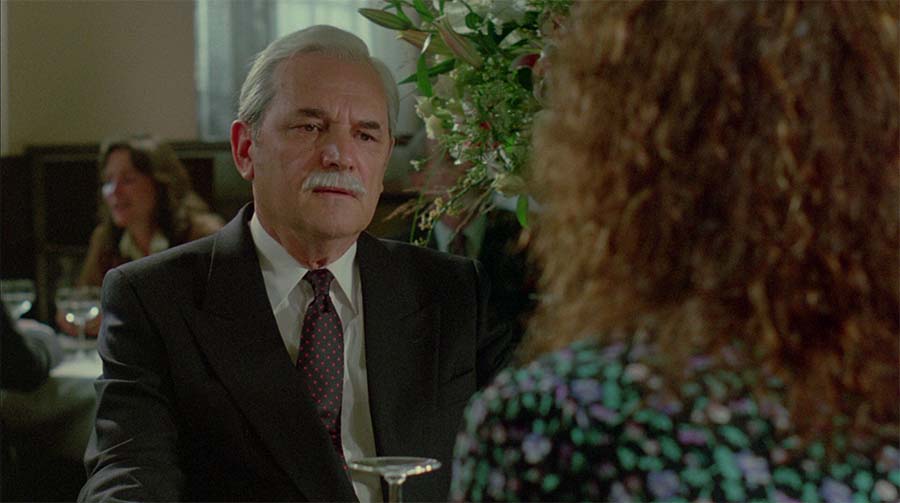
One last note. In 1976 Beatrice Straight won an Oscar for Best Supporting Actress for her role in Sidney Lumet’s critically acclaimed film NETWORK while only having a total of 5 minutes and 40 seconds of screen time. That same year Ned Beaty received his first Oscar nomination for his 5 minutes and 53 seconds of acting in the same film. This comes from Lumet’s recognition of the fact that there are no small roles and every character has to play every scene as if the movie belongs to them. Well, RUNNING ON EMPTY boasts a performance that should have found itself in the same situation but unfortunately did not. Stephen Hill (LAW AND ORDER) plays Annie’s Dad. He is a man who hasn’t seen his child in 14 years, forced to always wonder if she was alive or dead and is now being asked for a favor that may be too much to ask. Hill seamlessly runs the gamut of emotions in his only scene and he is so effective that he allows us to truly understand the pain that this man’s daughter has put him and his wife through. If there was ever a performance that deserved an Oscar nomination for being in only one scene in a film – less than 6 minutes of screen time – this is it.
P.S.: There is one real fault in the film that has created a question in my mind that I one day hope to get an answer to – While running from the F.B.I. at the beginning of the film, why does the family have to leave the dog behind? Just curious if anyone has an answer.
Watch RUNNING ON EMPTY
You May Also Like
